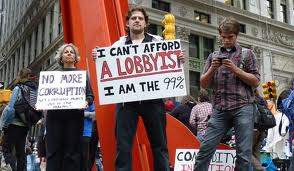 I am one of those unusual anomalies you find when thinking of political and ideological combinations: a male feminist. I proudly follow and support feminist voices, organisations, individuals and legislation in Britain, as well as the international feminist movements (such as increasing awareness of the Republican Party’s war on women, a literal and mainstream example of the inherent misogyny of capitalism).
I am one of those unusual anomalies you find when thinking of political and ideological combinations: a male feminist. I proudly follow and support feminist voices, organisations, individuals and legislation in Britain, as well as the international feminist movements (such as increasing awareness of the Republican Party’s war on women, a literal and mainstream example of the inherent misogyny of capitalism).
The basic question here is ‘What is feminism’? Ever since the women’s movement was postulated in Mary Wollstonecraft’s groundbreaking manifesto ‘A Vindication of the Rights of Woman‘, through the political and social campaigns in the 19th century, via the battles for female enfranchisement in the 1910s and ’20s, and the mainstreaming of women’s liberation in the latter half of the 20th century, the struggle of women’s rights has faced constant and near-universal mockery, ridicule, condescension, anger, slander, ignorance and simple disinterest. The political, social and media reprisals have been to denigrate and misrepresent the movement more severely and relentlessly than any other human rights issue – can you find a single recent article mocking Martin Luther King Jr. in such a way? And a childish and untrue consequence of this fearful ridiculing is, among many others, the creation of the ‘stereotypical’ feminist: ugly, single, hairy-armpit-bearing, bra-burning, man-hating, placard-waving and/or lesbian women who seem to live in a constant state of loud rage.
Faced with such an unpleasant label, can you blame nearly every woman who achieves political office or financial success of denying being a feminist? It’s almost as if for a woman to say she is a feminist is as reactionary as a man saying he is against women’s rights. Yahoo’s new CEO Marissa Miller says she wouldn’t consider herself a feminist, and that “I think it’s too bad, but I do think that feminism has become in many ways a more negative word.” Yet in the same interview she says “ I think that I certainly believe in equal rights, I believe that women are just as capable, if not more so in a lot of different dimensions,” which is exactly the kind of rhetoric and ideology the feminist movement has always used. Moreover, as Feministing.com points out, were it not for feminism and the victories won by feminist campaigns and campaigners then Marissa Miller would not even be CEO.
Miller’s attitude towards feminism is, sadly, the mainstream attitude by both the uneducated public and corporate media and governments. Feminism is described as some kind of extreme ideology, a fiercely militant fringe of violent man-haters and borderline terrorists who want to see men become extinct and all women to turn lesbian. Unfortunately, when any other human and civil rights movement is talked of in such a way, it is usually by rigidly right-wing tabloid commentators or on satirical tv shows; when applied to feminists and feminism, people seem to instantly accept it as fact, despite its innate and obvious ludicrousness. Even someone as supposedly progressive as Bill Maher can state with his customary conviction that ‘feminine values’ (‘sensitivity’, ‘feelings’, ‘committment’) are not only negative, but also stem only from women in the first place. And all along this stupid ignorance masquerading as in depth-discussion is being nodded at and applauded by the world’s general public, and certainly by the world’s men.
So, again, before we go any further, what is feminism? As any second-wave feminist will tell you (Germaine Greer, Sheila Rowbotham, Naomi Wolf, Natasha Walter etc), ‘feminism’ is the establishment of a human society without prejudice or discrimination based on gender. Now, did you notice that I didn’t use terms like ‘women’, ‘men’, and ‘equality’? That’s because, saying that women should be equal to men in everything sounds like suddenly forcing all jobs, political positions, cultural representations etc etc to be divided exactly half and half between men and women. That is clearly both impossible and detrimental to human society; you can go the whole hog and make every CEO, president, prime minister et al women, that won’t change people’s opinions, nor will it solve any problems (despite the strange, paradoxical fantasy that ‘there would be no war or poverty if women ruled the world’). Feminism is NOT female supremacy, and neither does it wish for the forced socialisation of power, wealth and opportunities between the genders.
Feminism IS for the elimination of the gender wage gap, of workplace discrimination against pregnant women, of sexual objectification in pop culture, of tokenism, of giving more coverage and discussion to all-male sports than all-female sports, of the idea that male film and tv stars are bigger audience pulls than female stars, for legalising and unionising prostitution, for providing adequate childcare for working parents, for sharing housework between partners, against assigning children to ‘male’ and ‘female’ games and toys and ways of dressing, of proper and universal sexual education for children and adolescents by schools, parents and pop culture itself, for the ending of the discrimination, disinterest and condescension female politicians face, for the promotion of alternative ideas of beauty and aesthetics that does not force millions of girls into anorexia, bulimia and into the vicious cycle of cosmetic surgery, for the teaching of the history and achievements of women across all societies, for the increase in resources for rape victims as well as the promotion of stigma and ostracisation for rapists, the promotion for victims of rape and sexual abuse to be able to report without reprisals and without the fear that their rapist will be one of the 93% of men brought to court on rape charges who are not convicted – the list goes on and on.
Of course, should even one of these policies be implemented, then it will threaten the men in power who rely on the oppression of women to remain in their position, a fear twisted and blown up to appear to threaten the status and ego of all men everywhere. But as I said before, feminism is not about displacing or replacing men at all; it is about a revolutionary change in the social, political and economic structures of all societies so that the women and men who become CEO or president or win the World Cup genuinely are the result of equal investment, training, education, opportunities and friendship. A man can still become CEO, provided the men and women who were not promoted lacked his own unique skills and abilities and not because his face will be more profitable on advertising posters or because the public might not believe in the business acumen of a woman. 
Do you see the difference between reactionary and sexist stereotyping and a genuine movement for social, political and economic change? Look at the stats of the societies with the most gender equality (Norway, Denmark, Cuba etc) and you will find these societies to be happier, more productive and more peaceful than any of the heavily capitalist countries of the developed world. Why? Because women are half of the human race, and can do and achieve all of the incredible, beautiful and life-changing things that the other half have done and continue to do.
It’s as simple as that. No prioritising, no favouritism, no condescension, no myth-making, no supremacism, no prejudice, no discrimination. Just love, unity and friendship, showing off the immense strength of women whilst showing men that working with this strength instead of against it makes life better for all of us regardless of gender. It’s not impossible, look at your own lives: no doubt they are full of healthy, enriching relationships between both men and women in relation to yourself, relationships that have brought joy, experience and meaning to the trials and triumphs of your lives. All feminism is is to go one step further and transform society as a whole into such a positive and powerful network of life knowledge and potential. If any of the old ideologies and causes left are still worth fighting for, this seems to be the best one to me.
Mr. Mulberry,


